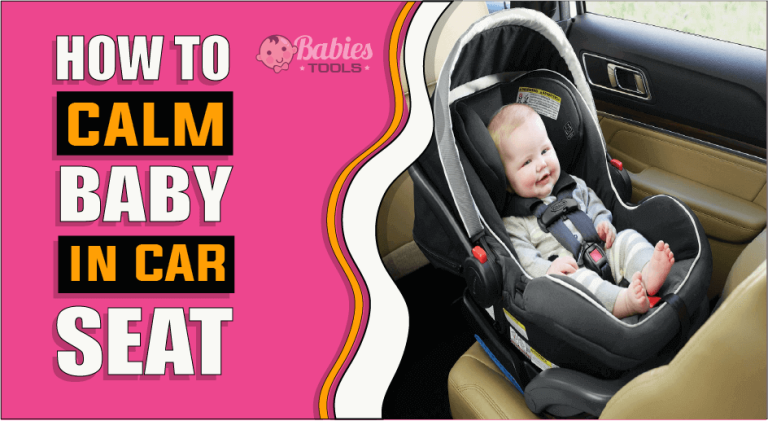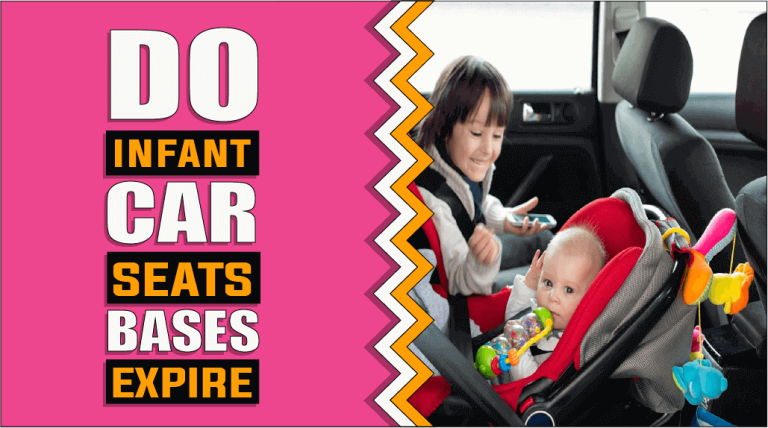Does baby car seats expire – The Truth Reveals
Are you a new parent wondering if your baby’s car seat has expired? You aren’t alone – it’s a common question many parents ask. A baby car seat is one of the essential safety equipment for any small child, and it’s vital to ensure that yours meets all current safety regulations. This article will address the question: ‘Does baby car seats expire.’ We will also discuss any dangers of using an expired car seat and the factors that affect its expiration date. We will also advise what to do if you have an expired car seat. By the end of this article, you should be well-equipped to make an informed decision about your baby’s safety. So, let’s dive in!

Let’s explore ‘Does baby car seats expire
The short answer to this question is yes, baby car seats expire, so it’s essential to check the expiration date before using a car seat. Most baby car seats are designed to last between four and six years, but this varies by manufacturer. To ensure safety, replacing your baby’s car seat after its expiration date is always best, as materials in the seat can become weaker with time and wear.
It is also essential to remember that car seat expiration dates are based on the date of manufacture, not the date they were purchased. Therefore, always make sure to check the manufacture date as well as the expiration date when buying a car seat. Along with paying attention to expiration dates and other safety measures for your baby’s car seat, it is also essential to ensure it is correctly installed. The National Highway Traffic Safety Administration recommends that your car seat be inspected by a certified technician at any of the thousands of inspection stations nationwide. This will ensure your baby’s car seat is safe and secure.
Let’s look at other factors you need to consider when buying and using a car seat.
- Choose the correct type of car seat:
It is crucial to identify which type of car seat is appropriate for your baby’s age, height, and weight. For example, you will need a rear-facing car seat if you have an infant under 20 pounds or a toddler between 20 and 40 pounds. Once your baby has outgrown the rear-facing seat, you can then move up to a forward-facing car seat.
- Read the instructions carefully:
When you unbox your new car seat, take some time to read through any instructions that are included with it. This will ensure that you know how to properly install and use the car seat, which is essential to keeping your baby safe on the road.
- Make sure your car seat fits in your car:
Before using a car seat, ensure it fits correctly in your vehicle. If the seat does not fit properly, contact the manufacturer for help or get a different car seat that will work perfectly in your vehicle.
- Keep your car seat clean:
To ensure proper and safe use, keep your car seat clean. Wipe down the surface and strap with a damp cloth to remove dirt and debris.
Overall, baby car seats do expire, so always check the manufacture date and expiration date before using a car seat and make sure to have it inspected by a certified technician. By doing this, you can help keep your baby safe in the car for years to come.
Are there any dangers with using an expired car seat?
Yes, there are dangers associated with using an expired car seat. Expired car seats may no longer meet the National Highway Traffic Safety Administration (NHTSA) safety standards. Let’s examine the significant dangers of using expired car seats.
1: Expired car seats lack the latest safety features-
Every year, new safety innovations and technologies are developed to make sure that car seats keep children safe in the event of an accident. Expired car seats may not meet the same safety standards as newer models, putting your child at greater risk for injury in a crash.
2: Restraints may not fit properly-
Car seat restraint systems are designed to be snug around the child’s body to prevent them from being thrown forward or out of the car in a crash. These restraints can become loose as time passes and may not provide proper protection.
3: Expired car seats have weakened materials-
Car seats are made out of materials that break down over time. As car seat age, the materials become weaker and may not be able to protect your child in a crash. Additionally, older car seat models may have been recalled due to defects, which can put your child at risk.
4: The car seat may not have been properly tested-
Safety standards change over time, and manufacturers must test their products to meet current regulations. If a car seat has expired, it may not have been re-tested for the latest safety standards.
5: Expiration can be hard to detect-
Most car seats have an expiration date, but if you purchased a used seat, it might not have the original label or instructions. It’s essential to check the manufacturer’s website for recall information and to find out when the seat was made so that you can determine the expiration date.
What to do if you have an expired car seat?
If your car seat has expired, it is essential to discontinue using it immediately. Car seats are designed to last a certain number of years and provide the necessary safety and strength when used correctly. When an expiration date is reached, the structure of the car seat may deteriorate over time, weakening materials and decreasing protection.
1: Check the Expiration Date.
First, check the expiration date printed on your car seat. Generally, most car seats will have a life expectancy of 5-7 years and can be found on a label that is usually located near the bottom or back side of the car seat.
2: Research Replacement Options.
After checking the expiration date, it is essential to research replacement options for your car seat. You may be able to purchase a new car seat of the same make and model or opt for an upgrade that fits your needs better.
3: Dispose of Expired Car Seat Properly.
Reselling, giving away, or donating an expired car seat is never recommended. To ensure it does not end up in someone else’s hands, take it to a local recycling center for proper disposal.
4: Install New Car Seat with Care.
Once you have obtained a new car seat, read through all the instructions carefully and follow them step by step when installing it into your vehicle. Properly installed car seats are the most effective way to ensure your child’s safety while in a vehicle.
5: Make Sure the Car Seat is Used Correctly.
It is also vital to ensure your child is secured correctly and safely whenever they are in their car seat. Check for broken pieces or faulty straps, and ensure the harness is snugly fastened around your child.
By following these steps, you can ensure that your child is safe and secure when riding in the car and that your car seat is current. Doing so will help keep your family safe while on the road.
What factors affect the expiration of baby car seats?
1. Use:
If a seat has been involved in an accident or otherwise subjected to hard use, its life span may be shortened. In this case, it is best to replace the seat as soon as possible to ensure maximum safety for your child.
2. Temperature:
Excessive heat or cold can damage the materials of a car seat, reducing its effectiveness and lifespan. It’s essential to check the temperature specifications of a baby car seat before purchasing, as some may not be suitable for extreme temperatures.
3. Sunlight:
Prolonged exposure to direct sunlight can cause the plastic of a car seat to degrade, reducing its effectiveness and lifespan. Whenever possible, it’s best to store a baby car seat in an area shaded by direct sunlight.
4. Cleaning Agents:
Specific cleaning agents, such as bleach or alcohol, can damage the materials of a car seat and reduce its effectiveness. Before cleaning your car seat with any agent, check the manufacturer’s warranty and instructions.
5. Moisture:
Although most models are designed to be used in wet environments, too much moisture can lead to the breakdown of materials in a car seat. Be sure to check your baby’s car seat for signs of water damage before using it, and ensure it is completely dry before storing it again.
Relevant Questions
Car seats typically have expiration dates printed on them, usually located on the underside of the seat or near the manufacturer’s label. It is essential to check this date regularly, as expired car seats may not provide adequate protection in a crash. Additionally, many states require that children use car seats until they are at least eight years old or weigh more than 80 pounds, whichever comes first.
Yes, car seats typically do expire. Most manufacturers set an expiration date of six years after the production date. This is to ensure that the materials used in the seat don’t degrade over time and that any safety features remain up-to-date with current industry standards. It’s essential to check your car seat for an expiration date and replace it when necessary. Doing so will help ensure your little one is safe and secure in the car.
It’s never safe to use an expired car seat. Safety testing partially determines car seat expiration dates, and using a car seat past its expiration date could lead to ineffective protection during a crash. Parents and caregivers need to check the manufacturing date of their car seats, as some models may expire as early as six years after being manufactured. For the best protection in a crash, replace your car seat with an unexpired one as soon as possible.
Conclusion Paragraph
To sum up, the answer to the question, ‘Does baby car seats expire’ is yes. Car seats have a lifespan of around six years, and it’s vital to ensure you keep an eye on the expiration date. Failing to replace your seat can seriously harm your child’s safety. If you discover that your seat is expired, be sure to either dispose of or recycle it properly, as specified in the manufacturer’s guidelines. There is also a range of nonprofits and other organizations that can help distribute these seats more safely throughout our communities and abroad. So next time you check your child’s car seat and find that it may be nearing its end, remember that safety must come first!






